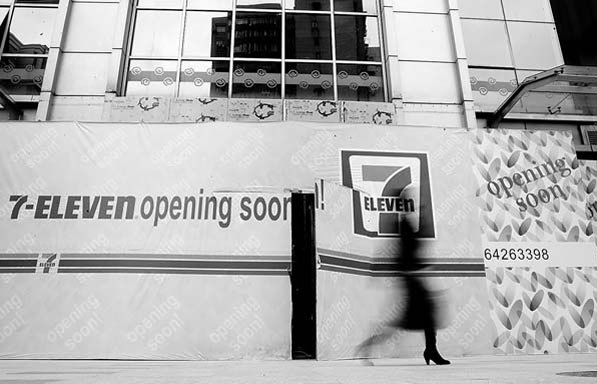Food for thought in the retail business
Updated: 2013-04-01 02:41
By LI WOKE (China Daily)
|
|||||||||||
Online rivals
Another retail giant, Guangzhou Grandbuy, saw negative net profit growth for the first time since it was publicly listed in 2007 and its annual operating revenue only slightly increased by 2.3 percent year-on-year to 7.35 billion yuan in 2012, while in 2010, the growth rate of its operating revenue was still higher than 20 percent, according to the annual financial report of the Shenzhen-listed company.
"In addition to standard economic reasons, traditional retailers have been affected greatly by online sales over recent years, especially regarding highly standardized and hard-to-carry products, such as rice, personal care items, cooking oil and beer," said Doreen Wang, head of client solutions at Millward Brown, part of WPP Plc, a British marketing communication giant.
On last year's Singles' Day, which was Nov 11, more than 100 million visitors pushed up Tmall.com's sales to 13.2 billion yuan. Sales revenue figures on this day alone were equivalent to the monthly or yearly revenue figures of other similar platforms in China.
According to a report released by China E-Commerce Research Center, an independent e-commerce research institution, the online retail market in China grew at a very rapid pace in recent years. In 2012, the transaction volume of the online retail market in China surged by 64.7 percent year-on-year to 1.32 trillion yuan. The figure will hit $27.1 billion in 2014.
Although some traditional retailers' businesses slowed down, others have maintained or increased their growth.
French Carrefour SA, the world's second largest retailer by revenue, said it will retain an expansion speed of around 20 to 25 new outlets in China every year. Carrefour announced on March 18 it had opened its first hypermarket in Inner Mongolia autonomous region to further its penetration into lower tier cities. Currently, Carrefour has 220 stores in more than 60 cities in China.
The UK's Tesco Plc is reported to be adding 16 new stores a year, almost the same as previous years.
In 2012, German Metro Group opened a record high of 12 stores, three to four times its original annual rate. The 12 new stores are mostly located in tier two and tier three cities, including Zhongshan and Shunde in Guangdong province.
"China is one of the most important focus countries for Metro Group. We were the growth leader in the industry last year thanks to our correct strategies in areas such as delivery and e-commerce," said the company.
As a modern business-to-business wholesaler, Metro China operates 64 wholesale centers in 45 cities across China, serving professional customers including hotels, restaurants, canteens, small and medium-sized retailers, companies, offices and institutions.
Related Stories
Bank plans to promote retail business 2013-03-30 01:42
Online retailing spurs changes in economy, study says 2013-03-26 10:32
Growth of total retail sales was slowed 2013-03-20 10:03
Retail giants accelerate expansion in China 2013-03-19 21:17
Standard Chartered invests in children’s retailer 2013-03-18 19:53
China's retail sales up 12.3% during Jan-Feb 2013-03-09 14:00
Today's Top News
Police continue manhunt for 2nd bombing suspect
H7N9 flu transmission studied
8% growth predicted for Q2
Nuke reactor gets foreign contract
First couple on Time's list of most influential
'Green' awareness levels drop in Beijing
Palace Museum spruces up
Trading channels 'need to broaden'
Hot Topics
Lunar probe , China growth forecasts, Emission rules get tougher, China seen through 'colored lens', International board,
Editor's Picks

|

|

|

|

|

|






